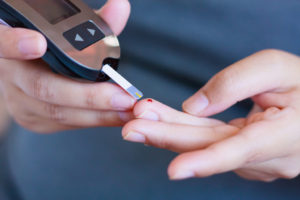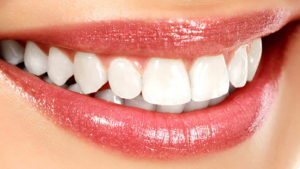Did you know there’s a two-way link between diabetes and your mouth? In this episode,” Dr. Chuck explains how people with diabetes are more likely to have periodontal disease than people without diabetes, and how periodontal disease may make it more difficult for people who have diabetes to control their blood sugar.
It’s amazing. Whatever goes into our mouth has an affect on the rest of the body. If you think about it, your mouth is the front door to your body. Physicians are really quick about having your back door checked, right?
You’re right, they are!
They do a colonoscopy. This is the front door, where everything is coming in. So what we want to do is help people understand not just how it affects diabetes, but so many others, cardiovascular disease, rheumatoid arthritis, pregnancy complications. Today what we’re talking about diabetes though. And yeah, there’s a direct link.
Well, that seems to be a great place to start!
Bacteria in the mouth cause inflammation. Inflammation is one of the things that affects so many different parts of the body. And with diabetes and … gum disease, the periodontal disease it’s a two-way street. The American Diabetes Association states, and this is their quote right here: “Emerging research suggests that the relationship “between serious gum disease and diabetes is two-way. “Not only are people with diabetes more susceptible “to serious gum disease, “but serious gum disease may have the potential “to affect blood glucose control “and contribute to the progression of diabetes. “Research suggests that people with diabetes “are at a higher risk for oral health problems, “such as gingivitis, as an early stage of gum disease, “and periodontitis, which is serious gum disease. “People with diabetes are at increased risk “for serious gum disease because they are generally “more susceptible to bacterial infection “and have a decreased ability to fight bacteria “that invade the gums.”

Okay, so break that down into my terms for me.
Well, first of all, this is not from a Dental Organization. This is from the American Diabetes Association. They understand that whenever you have maybe a decreased ability to fight certain bacteria, you can have more inflammation, and that affects, again, a lot more than just the gums. It affects the entire body. They’re showing just how much inflammation plays a role in so many different diseases. If you’re affecting the pancreas’ ability to produce insulin or to regulate your blood sugar, that’s going to affect everything. Now, can diabetes make gum disease worse? Yes, that’s what they’re saying. It’s a two-way street. Diabetes can make gum disease worse. Gum disease can make diabetes worse.
I get it, I got it.
So, if we can make the gum disease better, it’s going to make diabetes better, okay? If we make diabetes worse, it’s going to make the gum disease worse.
If we make diabetes better, it’s going to help the gum disease.
It’s all linked.
It’s a two-way deal.
So, today’s show is about diabetes, but it’s probably pretty comparable when it comes to heart disease and Alzheimer’s and it being a two-way street.
Thank you, thank you. We tend to focus on just one disease because, in medicine, it’s broken down into well, you take care of diabetes, and you take care of the lungs–
Yeah, but it’s all-inclusive. So, we can’t say it’s just on this. So, and when they say that you need a healthy mouth to have a healthy body, which I completely agree with, but you also need other things. I mean, if you’re gonna bake a cake, you might need eggs, you need flour, you need whatever all the ingredients are. It doesn’t mean you only need eggs. It doesn’t mean you only need flour. Okay, you need all these other things. Well, to have a healthy body …
It’s a team.
You need a healthy mouth, okay? It doesn’t have to be a Hollywood smile, but no infections going on. You need to eat properly, okay? You need a little bit of exercise in there. And you need a good attitude, too. So, even though we need these things, it doesn’t mean that’s all we need. We need a combination of things.
Totally get that. The thing that really surprises me is that you talk a lot about how diabetes and cancer and Alzheimer’s, there’s no pain with that.
That’s amazing, and the older I get, the more I like pain and what I mean by that is … And I never want to cause pain.
That’s never okay. However, pain is the best motivator I have ever found. When you have people, they’ve got a problem going on, but there’s no pain, so in their mind, there’s no problem.
Right.
You know, everything feels good, it must be okay. High blood pressure, diabetes, glaucoma, cancer. No pain for years. And then all of a sudden, they’re diagnosed as stage four cancer. Well, there was no pain. It didn’t hurt. So, lack of pain doesn’t equal health. That’s really important, I’m glad you brought that up. That’s a big deal.
And there are consequences for not taking care of this.
Well, everything that we do in life has consequences.
Right.
Everything. Either good consequences or bad consequences. If you study for the test–
Right
Okay, the consequences are you’re probably going to do pretty good on the test. Okay, if you don’t study for the test, there are consequences for that, too. You know, if we take care of ourselves, there are consequences. If we don’t, there are consequences. It’s amazing how long sometimes it takes things to hit you. What hit me finally just a couple months ago was every cavity that every person has ever had is where we were doing a poor job in removing the bacteria from our teeth, the plaque. Because you have to have the bacteria. You have to have the acids to destroy the enamel that’s on the teeth. And so many of us, we thought we were doing a good job.
Sure
Okay And we thought we were maybe eating right, but maybe we weren’t, and maybe we were leaving a whole lot more behind than we thought. Effort doesn’t always equal results.
So, what I’m taking away from today’s show is, specifically with diabetes, but generally speaking, things are a two-way street. If you have a bad mouth, it’s affecting the rest of your body, and if you have a disease in your body, it may make your mouth more susceptible to having problems.

That’s absolutely right. Especially with diabetes, they’ve already shown that link right there. So, yeah, so get a healthy mouth. I’m repeating myself, myself. But you don’t have to have a Hollywood smile. You have to start with just health. Take care of the infections. Make sure you have an open airway. Make sure that you have a bite just right. So, anyway, those are the basic things that we need to do. So, yeah, it’s up to you. It’s up to me.
Question Of The Week:
Todays question comes from Danielle this week, and this is personal for her because she has had a history of breast cancer and she wants to know: How safe are dental x-rays?
That’s a great question, and we hear this all the time. I’m going to tell you, today they’re way safer, much safer than they were many years ago. Back when I was in dental school, they used a regular film and then they actually increased the speed of the film and they went from regular film to something called ultra-speed film, which used one-tenth of the radiation that we use in the regular film.
Oh, wow.
Then they came out with digital, which uses one-tenth of what you had on the ultra-speed film.
It’s going in a good direction.
So, yeah, so the amount of radiation that you’re getting from dental x-rays, oral x-rays, is this big. When you’re taking like a chest x-ray, you’ve got to go through a big area, a great big thickness. When you’re going through just a little bit of tissue here, and then the bone and the teeth right there, it doesn’t take that much, plus it’s a much smaller area. So, years ago, that was a big, big issue. You’d have to take an awful lot. We had a radio oncologist talk to our group one time, and he said, “Is there anything I can do to help you, dentists?” And we said, “Yes, would you please inform your patients “that dental x-rays are actually okay “after they’ve had radiation treatment?” And then, he was like, “What, they don’t think it’s okay?”
So, yeah, Denielle you’re okay. Again, great question! All right, well it’s time to review the three points about diabetes tying in with the overall health of your mouth. Point number one. What’s our take away from number one?
Well, it’s a two-way street. Whatever happens in your mouth affects the rest of your body. With diabetes, whatever happens with your diabetes affects your periodontal disease. And that’s not my idea. Again, check out the links. We’re not making this stuff up.
The number two point is that there’s no pain.
Absolutely, no pain. Oh man, I wish there was. I’m not into pain, you know, but it’s a wonderful motivator. Lack of pain doesn’t motivate. When you’ve got that splinter in your foot, you can’t wait to get it out, but if it doesn’t hurt, it sits there.
So, no pain doesn’t mean you don’t have mouth problems or diabetes or other kinds of problems. And the third one: There are consequences.
Everything we do in life has consequences. If you have proper home care, the consequences are you’re not gonna get so many cavities, your gums are gonna be healthy, you’re gonna have fresh breath, all those good- If you don’t, you’re gonna have consequences not just in your mouth, but you’re gonna have consequences that affect the rest of your body. So, yeah, controlling your diabetes will help your gum situation. Helping your gum situation will help your diabetes. So, everything has consequences. Just make sure they’re positive consequences.
We have a health crisis in this country, and this is one of the ingredients that we need to address. So, ask your physician, tell your neighbors, look at this, spread the word. All we’re trying to do is connect the dots between the mouth and the rest of the body.
